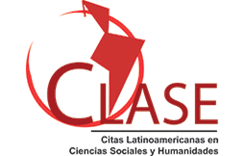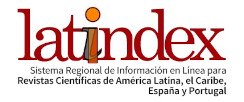About the Journal
Focus and Scope
The Journal of Management and Regional Development (Revista Brasileira de Gestão e Desenvolvimento Regional - G&DR) is a pluralistic orientation journal and publishes papers that present original contributions, theoretical or empirical, related to regional development. Values the interdisciplinary dialogue, opening space for contributions from other areas that have interface with the central project of the journal. It is available for domestic and foreign researchers and has a varied editorial board, distributed by various institutions and regions of the country as well as international consultants.
Â
The Journal of Management and Regional Development (Revista Brasileira de Gestão e Desenvolvimento Regional - G&DR) includes thematic dossiers, scientific articles and theoretical-methodological updates, summaries, research notes, case studies, interviews and special texts (guest authors, transcription of lectures, debates, and, possibly, works presented in congress with academic and social interest), as recommended by research groups and approved by the Editorial Board.
- Are accepted for evaluation unpublished material in Portuguese, English, French and Spanish.
- The publication of the paper is subject to opinions of members of the Councils and Editorial Board, ensuring the anonymity of the authors and also the referees throughout the evaluation process.
Areas of interest of the Journal of Management and Regional Development:
- Social and Economic Development
- Science, Technology and Society
- Communication and Regional Development
- Environment and Sustainable Development
- Science Policy, Technology and Innovation
- Science, Technology and Work
- City Management
- Tourism and Regional Development
- Rural Development
- Management of public and private projects
- Human capital, technological and industrial
- Planning and development
- Processes and regional development experiences
Peer Review Process
The Brazilian Journal of Regional Management and Development adopts the Double Blind Review system.
All papers submitted will be examined by the editor, executive editor, editorial board members, scientific board or assistant editors to verify that the article content is appropriate for the journal and whether the manuscript has been prepared in accordance with the authors' instructions. The publisher may reject the article if it detects: errors regarding the instructions; inadequate writing; or if, the work does not contain sufficient scientific or technological merit. The evaluation is registered in the "Form - first evaluation phase." The form is conformed by eight criteria, namely: adherence to the thematic line of the journal, approach to the topic, clarity of the abstract, article structure, (3 points) (Attends to 3 points, partially meets 2 points, does not meet -1 points), and does not meet -1 points The cut line for the second evaluation phase, which consists of sending the article to external reviewers, is 15 points.
In order to verify plagiarism, which is carried out in the first evaluation phase, the Copy Spider software is used.
Articles approved in the first evaluation phase will be sent by the executive editor to two ad hoc evaluators, experts on the subject of the proposed article. The evaluators will receive the manuscript, without any identification of the authors, in addition to the evaluation form. All evaluators, when invited to this role, received the evaluation guidelines from the journal.
In any stage of the process, the evaluators will know the identity of the authors, as well as, the authors will not know the identity of the evaluators.
 The papers sent to the journal will be analyzed by the Editorial Board according to their specialty and will be evaluated by ad hoc referees according to the following criteria:
- the contribution and timeliness of the technical-scientific content for the area;
- scientific relevance;
- coherence between objectives, theoretical aspects, material analyzed (if any) and final considerations;
- clarity and quality of writing;
- compliance with the journal's publication standards.
The decisions of the evaluators can be: accept, accept the article with changes or reject. In case of disparate opinions, the article may be referred to a third evaluator, as decided by the publisher.
The RBGDR prioritizes the publication of unpublished articles, which will have priority over articles that have been published in annals of scientific events.
The RBGDR has no interest in publishing articles translated from foreign scientific journals.
Submission of articles will always be via the Internet and must strictly follow the standards for publication.
Editorial flow data for 2025.
Submissions received/year: 386
Rejected submissions/year: 280.
Accepted submissions/year: 52
Average time of evaluation of articles: 315 days
Refusal rate: 95%
The editorial team of RBGDR follows the recommendations of Good Practices Ceintíficas of FAPESP. http://www.fapesp.br/boaspraticas/codigo_050911.pdf
Â
Since the January 2020 issue, RBGDR has published all bilingual issues. Texts are published in the original language of the submission and in English. The objective is to give more visibility to publications for the international scientific community. The authors will be responsible for providing the versions of the approved texts in the second language.
Publication Frequency
Peridiocity: quarterly (Jan-Apr / May-Aug / Sep-Dec)
The publication is quarterly. Articles are published continuously, within the period of each issue.
- issue from January to April.
- issue of May - August.
- September - December number.
Open Access Policy
This journal offers immediately free access to its content, following the principle to available the scientific knowledge free to the public provides wider world knowledge democratization.
Journal History
The RBGDR was created in 2004. The journal has as its particularity the thematic line, which privileges a field of historically recent knowledge, regional development. Considering that the level of maturity of a field of scientific knowledge can be evaluated from the consideration of three aspects: the means of dissemination existing in the area in question, ie the existence of scientific literature; the existence of representative research groups and associations; and the existence of regular post-graduate courses stricto sensu, which are responsible for the training of researchers; the Brazilian Journal of Regional Management and Development plays an important role in consolidating this field of knowledge.
By publishing articles stricto senso of Higher Education Institutions all over Brazil, the RBGDR affirms itself as a space of representative academic interlocution.

















